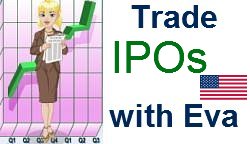- CVR Refining is 2013's first IPO to notch first-day gains
- Refinery owner's units promise yield of nearly 19%
- MLP IPOs have been popular among investors looking for dividends

The Sugar Land, Texas, company is the second of three expected IPOs from master-limited partnerships in the energy sector this week. The company said it plans to pay $4.72 a common unit, or an annual yield of nearly 19% based on the offer price. That yield towers over the average of about 6.5% for the Alerian MLP Index, the industry benchmark that tracks the performance of 50 prominent MLPs.
The company owns petroleum-refining assets, including two refineries--one in Coffeyville, Kan., and another in Wynnewood, Okla. It also owns roughly 350 miles of pipeline. The company said in a prospectus filed with the Securities and Exchange Commission the close proximity of its two refineries to the Cushing, Okla., crude-storage hub helps its refineries operate with low costs and high profit margins.
It generated $6.5 billion in sales in the first nine months of 2012, up 76% from the year-earlier period. Net income rose to $541 million, up 34% from $403 million.
Demand has been strong for issuers of MLPs, which typically offer higher yields than blue-chip stocks. Low interest rates have prompted investors to search for new streams of income. Fourteen MLP issuers stepped into the market last year, with 13 of those in a row rising in their trading debuts.
But earlier this week, USA Compression Partners LP (USAC) became the first MLP since May to drop on its first day. Friday, SunCoke Energy Partners LP is on the docket to raise as much as $284 million. Its common units are set to hit the NYSE under the symbol SXCP.
CVR Refining is an offshoot of independent refiner CVR Energy Inc. (CVI), which is set to own roughly 84% of CVR Refining's units after the offering. Investor Carl Icahn took control of CVR Energy last year, and his Icahn Enterprises LP (IEP), run by Mr. Icahn, said it would buy four million CVR Refining units at the offer price.
CVR Refining plans to use the proceeds raised in the offering to pay down debt and bankroll maintenance and other expenses.
Credit Suisse Group AG (CS, CSGN.VX) and Citigroup Inc. (C) were CVR Refining's lead underwriters.
***********
The New Year is out of the blocks and off to a strong start for the Master Limited Partnership (MLP) space with fourth quarter distribution announcements coming in slightly ahead of my expectations and with three MLP IPOs being completed in January: USA Compression Partners, L.P. (USAC), CVR Refining, L.P. (CVRR) and SunCoke Energy Partners, L.P. (SXCP).







